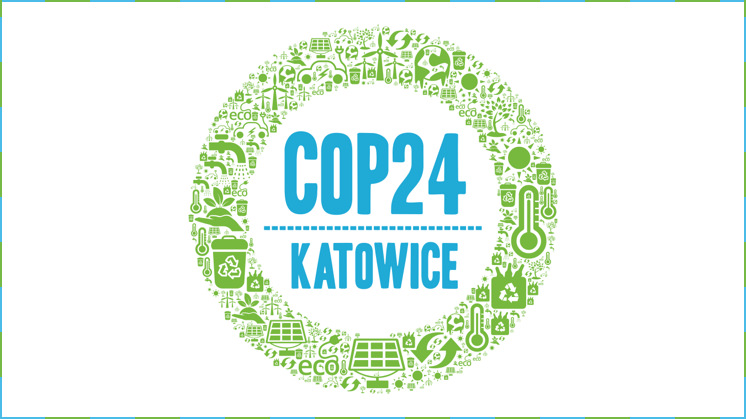Perspectives of the 2018 Climate Summit
COP24 will establish the instruments to be used to comply with the Paris Agreement and will send strong signals to governments and civil society
The Katowice Climate Summit (COP24) will take place from 2nd to 14th December under Poland's presidency and will constitute a real milestone in the global climate action agenda. We analyse, in detail, its progress and possible results.

The Katowice Climate Summit (COP24) will be structured around three main lines of action:
1. Finalisation of the Paris Agreement Work Program with the approval of the Rulebook that will allow the main elements included in this agreement to be implemented.
2. Consolidation of the political phase of the Talanoa Dialogue, which will take stock of the situation and serve as a basis for political decision-making.
3. The launch of political announcements around the strategies to decarbonise the economy by 2050 and the review of climate contributions (NDCs) by 2020.
Approval of the Rulebook
This Rulebook will establish the instruments needed to meet the objectives of the historic Paris Agreement thanks to the adoption of various decisions to advance the development of new climate policy frameworks — all of them more ambitious — and strengthen collaboration between governments and also between governments and all the actors in society (companies, regions, local authorities, etc.). These include:
- Details on the aspects that will guide the design of the climate contributions presented by governments. The NDCs are the document through which governments show the international community their climate objectives and the measures they will put in place to meet them. The availability of a uniform system for setting climate targets and horizons for all governments and a framework for presenting measures and indicators in a rigorous and transparent manner will be a fundamental aspect in this area.
- The issues associated with the transparency of information, establishing homogeneous and systematic frameworks for all governments to show the progress towards their climate indicators and the degree of compliance with their objectives, allowing comparability between them. Special importance will be given to climate adaptation and financing.
- The establishment of collaborative schemes between countries to achieve their climate objectives and link them to the Sustainable Development Goals (SDGs). The basis will be laid for the transfer of mitigation results and the promotion of sustainable development in the most vulnerable countries from an economic and environmental perspective. A work agenda for 2019 will also be defined.
- Progress will also be made on the technology transfer mechanism to respond to the needs of countries with fewer economic resources and to facilitate compliance with their NDCs, the creation of the Paris Agreement compliance committee and the system for reporting and accounting for the climate finance provided by developed countries, among other issues.
Consolidation of the Talanoa Dialogue
The Talanoa Dialogue External link, opens in new window. is a platform for dialogue at the global level, which formalises the contribution of civil society to the climate change negotiation process around three questions: where we are, where we want to go and how do we get there.
External link, opens in new window. is a platform for dialogue at the global level, which formalises the contribution of civil society to the climate change negotiation process around three questions: where we are, where we want to go and how do we get there.
High-level representatives from governments and civil society will meet at COP24 to analyse and discuss the latest diagnosis from the Intergovernmental Panel on Climate Change (IPCC) External link, opens in new window. — published on 8th October 2018 — and they will present different proposals and initiatives to increase climate ambition and thus meet the objectives set.
External link, opens in new window. — published on 8th October 2018 — and they will present different proposals and initiatives to increase climate ambition and thus meet the objectives set.
 [PDF] External link, opens in new window.
[PDF] External link, opens in new window.
Political announcements of climate action
During COP24, governments and international organisations will inaugurate a round of political announcements on climate action.
The Paris Agreement establishes 2020 as a milestone for governments to send long-term decarbonisation strategies and renewed and more ambitious versions of the climate contributions presented in 2015. The Secretary-General of the United Nations wishes to further this political process by holding a high-level event within the framework of the United Nations General Assembly in September 2019. Some of the main threads of this event include the opportunities presented by the energy transition for a decarbonised economy and sustainable financing.
In this context, many governments are expected to advance new emission reduction targets and use the platform offered by COP to present their long-term climate strategies. One of the most important presentations will be that on the European Emissions Reduction Strategy for 2050, which will shape much of the climate policy debate on the European continent over the coming year.
Iberdrola, a world benchmark in the fight against climate change




